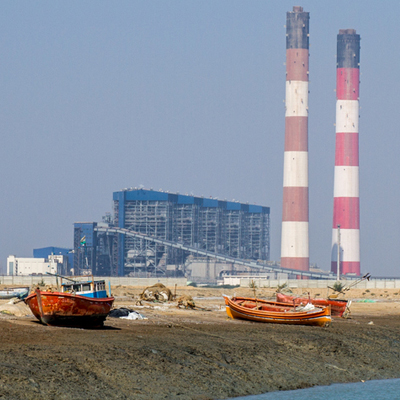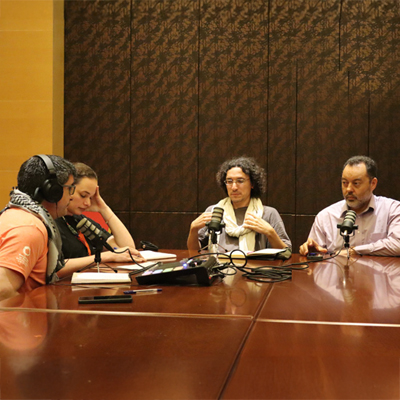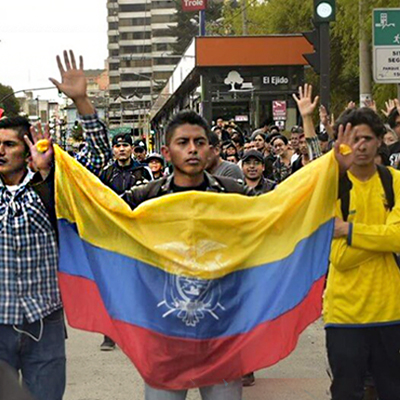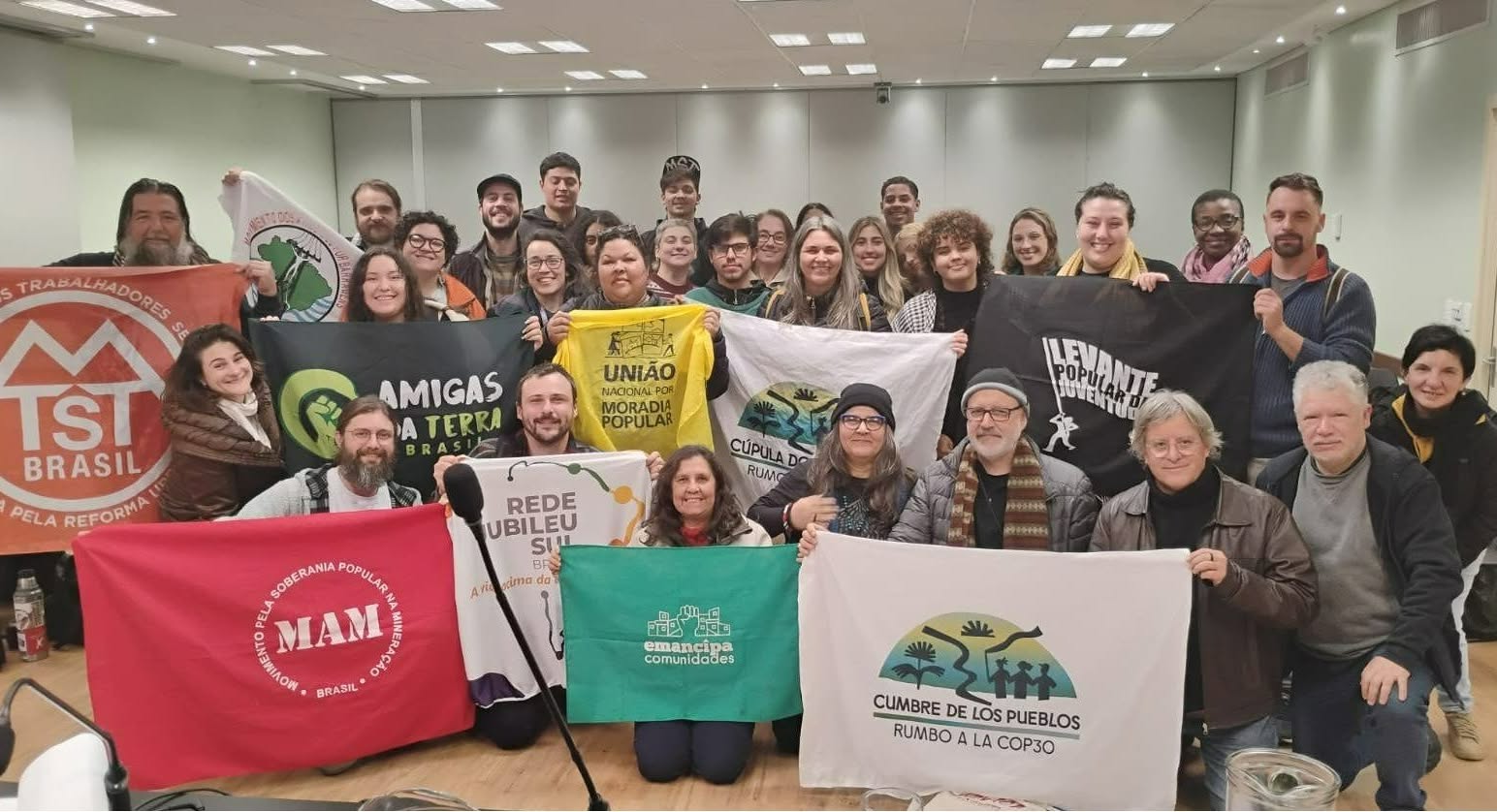Honduras: President of the National Committee for the Prevention of Torture threatened
Interview with Glenda Ayala, president of the MNP-CONAPREV.
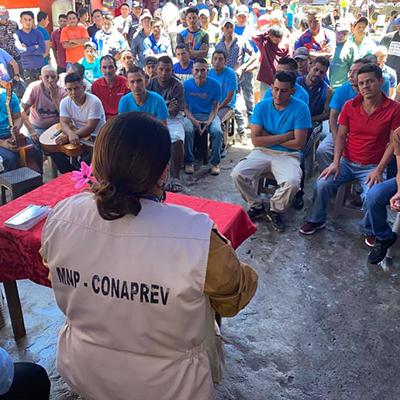 MNP-CONPAREV
MNP-CONPAREV
Lawyer and human rights defender Glenda Ayala Mejía is the commissioner and president of the National Committee for the Prevention of Torture, Cruel, Inhuman or Degrading Treatment of Honduras (MNP-CONAPREV). Since the end of 2021, her and her family’s physical integrity have been at risk after receiving a series of threats.
Although Ayala has been working for the administration of justice in Honduras for more than 20 years, as a human rights prosecutor for four years, and as a sentence execution judge for the remaining 16 years, “I have never received a threat or a dangerous situation like the one I am currently experiencing,” she said in dialogue with Real World Radio.
In 2016 she was elected by civil society to integrate the MNP-CONAPREV for a period of three years, and in 2019 she was ratified for three more years. In this second period, the threats against her person worsened in the same way as the militarization of her country.
“In the first three years, although it is true that there have been obstructions to work and access difficulties, until now I have not had a threat as strong as the one I’m facing; it is a situation where there is a preconceived plan to cause harm to my person and my family”, said the lawyer.
Militarized context
In the same year her position was ratified, a state of emergency was decreed in the penitentiary centers in Honduras: in the month of December 2019 alone, more than 50 people deprived of liberty died, and the President handed over the administration of the prisons to the Armed Forces. According to Glenda Ayala, after this decision began “a regression in terms of human rights.”
One of the tasks of the MNP-CONAPREV is to carry out visits to centers of deprivation of liberty, custody or internment to ensure that human rights are respected in said institutions. As of 2019, rejection towards the work of CONAPREV became more noticeable. Ayala points out that “the obstruction of income started rising” and that, as a national commissioner, she has been a victim of discrimination for being a woman.
In this context, from the MNP-CONAPREV, the lawyer and defender has denounced human rights violations in prisons, isolation and solitary confinement of persons deprived of liberty, corruption in the administration of the centers and entry of prohibited and illicit objects with the complicity of officials.
In addition, the Prevention Mechanism prompted the Special Prosecutor for Human Rights to investigate the complaint against the deputy director of the Tamara prison who, in early 2020, beat up and fractured a person deprived of liberty. Ayala assures that this situation “has generated retaliation by authorities.”
“We are in a state of defenselessness in our country where a repressive militarist regime has prevailed, and the people who work and fight for the defense of human rights have an uphill situation,” she said. And she denounced that she has gone twice to the protection mechanisms to present a statement and evidence of the reprisals suffered, to have protection from the State, “and the answer was denied.”
“That the people, the State officials, the members of the order assigned to these centers practically have a license and protection to commit crimes, represents a serious situation that those of us who are working are going through, and we have to point out this type of arbitrary situation. Obviously, we will be that target that must be removed to continue,” she lamented.
On December 28, 2021, the Inter-American Court of Human Rights (IACHR) issued a statement requesting the Honduran State to “adopt the necessary measures, with a gender perspective, to protect the rights to life and personal integrity of Glenda Carolina Ayala Mejía and her nuclear family. These protection measures did not become effective until 23 days after she was assigned custody.
Uncertain future: “There are no conditions in Honduras to continue carrying out my work”
For a month, Glenda Ayala and her family have been in a serious situation of insecurity. That is why several organizations, including Friends of the Earth Latin America and the Caribbean (ATALC) called for internationalist solidarity to give visibility to her case and safeguard the life of the commissioner.
The Prosecutor’s Office is investigating the case based on evidence and people pointed out by Ayala, which increases the risk since it deepens the lawyer’s exposure. In her words: “Notwithstanding the outcome of the process, we continue to demand the judicialization of the cases that are referred to the Public Ministry. (…) To date, only one of the cases we have referred has been judicialized; this means that impunity is favoring people who have State tools to cause harm”.
This January 27, the government of Xiomara Castro will take office in Honduras. The transition that had brought hope for change and a return to institutionality was disrupted, according to Ayala, by the events of January 20, where 20 deputies from Libre, Castro’s party, did not vote what had been agreed, generating conflicts and divisions in the party close to start ruling. In addition, a few weeks ago a legislative decree was approved establishing the indefinite intervention of the military in prisons.
“I think that there may be many more women who are in charge of institutions like CONAPREV and that we may be going through a similar situation. To eradicate the practices of torture, we need to strengthen national commitments with the States that have ratified the Convention [against Torture and Other Cruel, Inhuman or Degrading Treatment or Punishment] and the [facultative] protocol [of the Convention], to provide protection to those responsible for the national mechanisms. Otherwise, we run the risk that many of us who work in this context will be merely decorative figures out of fear or risk of reprisals for doing our job,” Ayala reflected towards the end of the interview.



